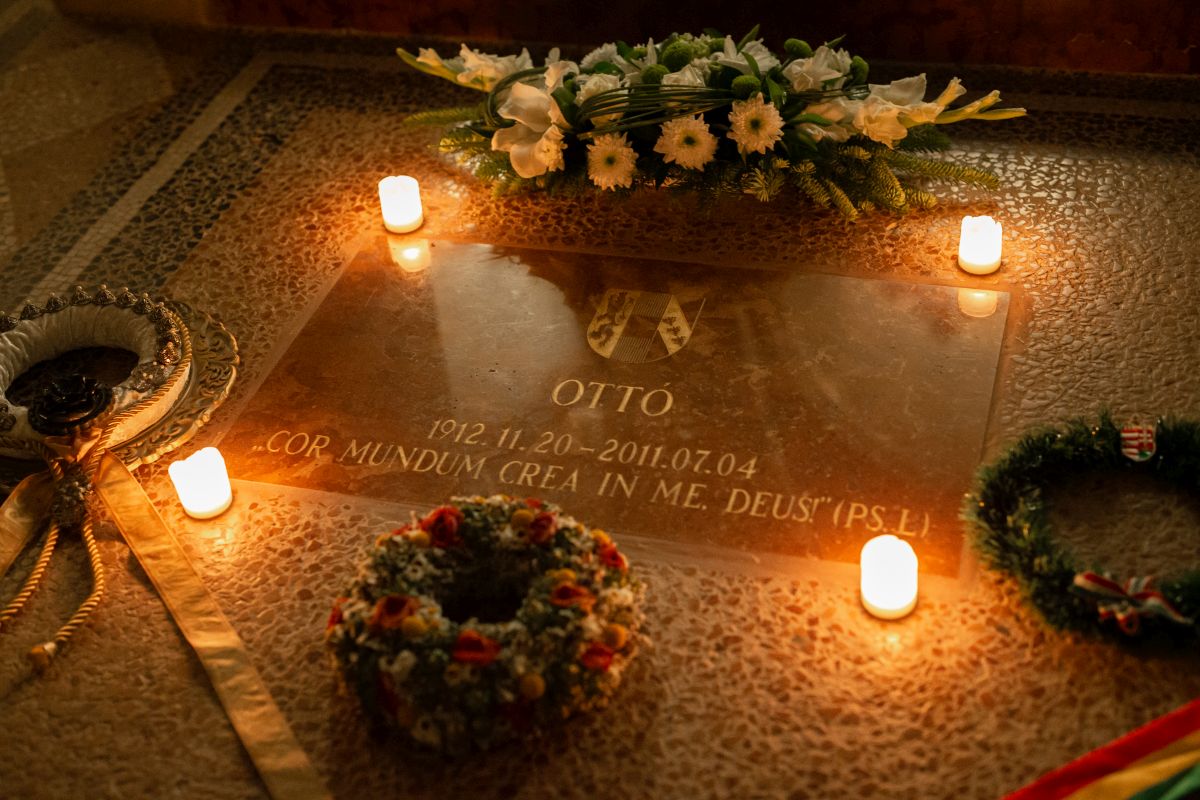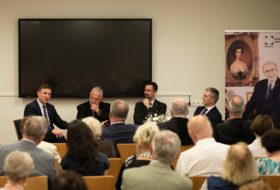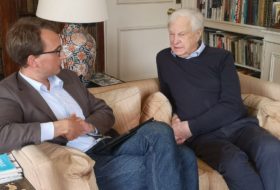You can listen to the broadcast in Hungarian by clicking here:
When 13 years ago, on 4 July 2011, Otto von Habsburg, the last heir to the Hungarian throne and Member of the European Parliament for 20 years, died at the age of 99, a life that was rich in twists and turns and, one could say, adventurous, came to an end. The four-year-old boy, who was at the funeral procession of Emperor and King Franz Joseph and whose father, Charles I (IV), became the successor to the throne after the assassination of Franz Ferdinand in Sarajevo on 28 June 1914, had witnessed multiple regime changes during his long life. His life was repeatedly threatened, and he might well have lost his personal integrity, moral fibre, faith and optimism. But that was not the case.
He was brought up as Crown Prince, yet when it became apparent that he would never reign, he devoted his public career to shaping the fate of Europe. He paved the way for his motherland, Austria, to join the EU and did much to prepare for the 2004 enlargement, which brought Hungary into the European Union. For his commitment and faith, it was a special grace of God that he was blessed to have lived to see it all, and his passing came four days after Hungary’s first EU Presidency concluded on 30 June 2011.
We know that the current term of our Presidency, which began on 1 July, takes place in entirely different circumstances from the last one. The situation of our continent has considerably deteriorated since then, the tasks have multiplied, and the great question remains as to how we can develop the political will that could bring about a substantial improvement, enhancing Europe’s internal condition and external competitiveness. In January 2011, in an article published in the pages of Heti Válasz, János Martonyi, referring to the objectives of our EU Presidency at the time, translated the term ‘honest broker’—the expected role of any country holding the Presidency—into ‘benign shepherd’, which gained wide acceptance at the time. Therefore, those who bark at the flock are not sheepdogs but, instead, caring shepherds who lead them.
A vital task of the Hungarian EU presidency is to guide the country like a shepherd by explaining reasonably that the Hungarian family policy is not an ideological bludgeon but a factor of European competitiveness. Furthermore, the Hungarian stance on migration—even if the radical language sometimes suggests this—is not a rigid and militant method of keeping away unfortunate people who want a better life but a sober understanding of the limits of social integration. The emphasis on the significance of Christian values is, in many cases, not a blatant, mindless rant, but, in all our fallibility, a representation of a time-honoured form of human coexistence that is still up to date in the modern world as well. We are looking for allies to acknowledge this.
During his official visit to Vienna yesterday, President of the Republic of Hungary Tamás Sulyok placed a wreath at the resting place of the last Hungarian heir to the throne and MEP in the legendary Capuchin Crypt. He did so three days after the start of our EU presidency and four days after the formation of the political group Patriots for Europe, established in Vienna.
Although the Austrian, Czech and Hungarian founders of the new political party formation or the presidential wreath placed on the coffin of Archduke Otto could be signs of indulging in nostalgia for the monarchy, given the actors and the circumstances, we can be assured that this was not the case. On the contrary, it meant that regional cooperation in Central Europe continues to be crucial, and Otto von Habsburg, as a remarkable member of his family and a representative of modern Europe, was a pragmatic politician who understood that the necessity of preserving national identity and the commitment to the cause of European integration are not mutually exclusive but rather, reinforce each other. In his speech in Székesfehérvár in May 2004, as the first European elections in Hungary were approaching, he urged his audience to “be patriots, but above all, Hungarians, because if one is not a good Hungarian, one cannot be a good European.” Let us take these words as an encouragement today!
Gergely Prőhle, Director of the Otto von Habsburg Foundation


